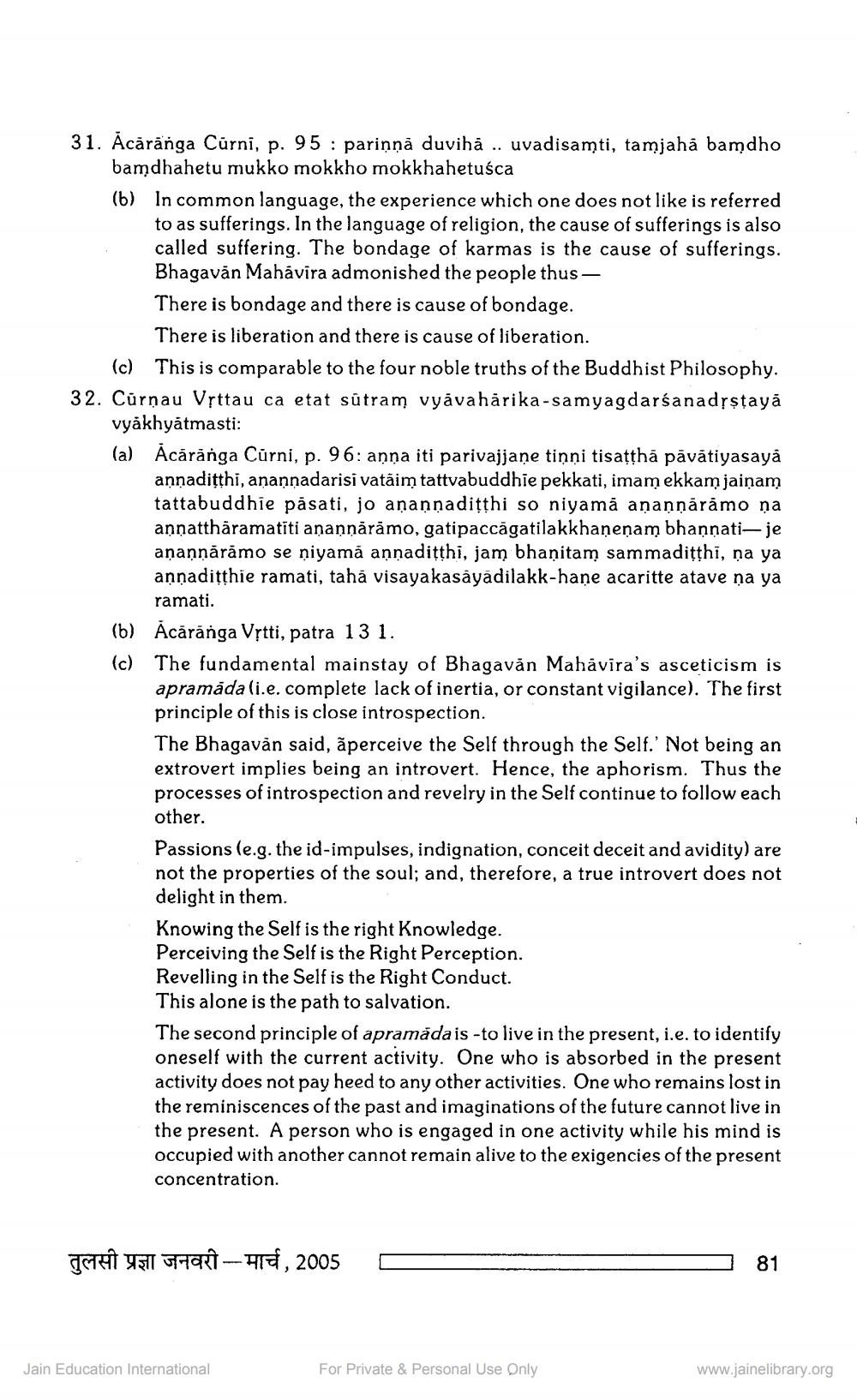________________
31. Acåranga Curni, p. 95: parinnå duviha .. uvadisamti, tamjaha bamdho
bamdhahetu mukko mokkho mokkhahetusca (b) In common language, the experience which one does not like is referred
to as sufferings. In the language of religion, the cause of sufferings is also called suffering. The bondage of karmas is the cause of sufferings. Bhagavān Mahavira admonished the people thus - There is bondage and there is cause of bondage.
There is liberation and there is cause of liberation. (c) This is comparable to the four noble truths of the Buddhist Philosophy. 32. Curnau Vrttau ca etat sútram vyávahärika-samyagdarśanadpstaya
vyakhyatmasti: (a) Acáranga Curni, p. 96: anna iti parivajjane tinni tisatthā pāvātiyasaya
annaditthi, anannadarisi vatāim tattvabuddhie pekkati, imam ekkam jaiņam tattabuddhie påsati, jo anannadiţthi so niyama anaņņārāmo na annatthāramatiti anannārāmo, gatipaccāgatilakkhaneņam bhannati-je anannārāmo se niyamá annaditthi, jam bhaạitam sammadiţthi, na ya annaditthie ramati, taha visayakasayadilakk-hane acaritte atave na ya
ramati. (b) Acărănga Vstti, patra 13 1. (c) The fundamental mainstay of Bhagavån Mahavira's asceticism is
apramăda(i.e. complete lack of inertia, or constant vigilance). The first principle of this is close introspection. The Bhagavan said, ăperceive the Self through the Self.' Not being an extrovert implies being an introvert. Hence, the aphorism. Thus the processes of introspection and revelry in the Self continue to follow each other. Passions (e.g. the id-impulses, indignation, conceit deceit and avidity) are not the properties of the soul; and, therefore, a true introvert does not delight in them. Knowing the Self is the right Knowledge. Perceiving the Self is the Right Perception. Revelling in the Self is the Right Conduct. This alone is the path to salvation. The second principle of apramada is to live in the present, i.e. to identify oneself with the current activity. One who is absorbed in the present activity does not pay heed to any other activities. One who remains lost in the reminiscences of the past and imaginations of the future cannot live in the present. A person who is engaged in one activity while his mind is occupied with another cannot remain alive to the exigencies of the present concentration.
TAET YE HARU-ARE, 2005
-
81
Jain Education International
For Private & Personal Use Only
www.jainelibrary.org




